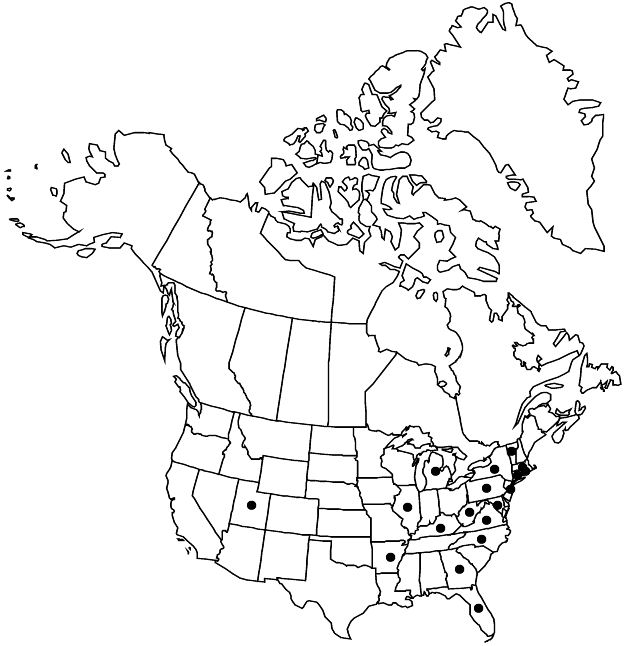Difference between revisions of "Deutzia scabra"
Nov. Gen. Pl., 20. 1781.
FNA>Volume Importer |
imported>Volume Importer |
||
| (3 intermediate revisions by 2 users not shown) | |||
| Line 15: | Line 15: | ||
|name=Deutzia crenata | |name=Deutzia crenata | ||
|authority=Siebold & Zuccarini | |authority=Siebold & Zuccarini | ||
| + | |rank=species | ||
}} | }} | ||
|hierarchy=Hydrangeaceae;Deutzia;Deutzia scabra | |hierarchy=Hydrangeaceae;Deutzia;Deutzia scabra | ||
| Line 30: | Line 31: | ||
|elevation=10–200 m. | |elevation=10–200 m. | ||
|distribution=Ark.;Conn.;Fla.;Ga.;Ill.;Ky.;Md.;Mass.;Mich.;N.J.;N.Y.;N.C.;Pa.;R.I.;Utah;Vt.;Va.;W.Va.;e Asia (Japan). | |distribution=Ark.;Conn.;Fla.;Ga.;Ill.;Ky.;Md.;Mass.;Mich.;N.J.;N.Y.;N.C.;Pa.;R.I.;Utah;Vt.;Va.;W.Va.;e Asia (Japan). | ||
| + | |introduced=true | ||
|discussion=<p><i>Deutzia</i> crenata and <i>D. scabra</i> are highly variable and have long been variously interpreted. A. J. Rehder (1920), assisted by H. O. Juel of Uppsala University, studied the three specimens at UPS that Thunberg had named <i>D. scabra</i>. He selected one as the type but said it was the same as the later-described D. crenata. J. Ohwi (1965) listed eight synonyms for <i>D. scabra</i> and interpreted D. crenata as consisting of three varieties, which included six synonyms (including “<i>D. scabra</i> Thunberg in part”). In view of the above, and the many cultivars that have been developed, D. crenata is treated here as a synonym of <i>D. scabra</i>.</p> | |discussion=<p><i>Deutzia</i> crenata and <i>D. scabra</i> are highly variable and have long been variously interpreted. A. J. Rehder (1920), assisted by H. O. Juel of Uppsala University, studied the three specimens at UPS that Thunberg had named <i>D. scabra</i>. He selected one as the type but said it was the same as the later-described D. crenata. J. Ohwi (1965) listed eight synonyms for <i>D. scabra</i> and interpreted D. crenata as consisting of three varieties, which included six synonyms (including “<i>D. scabra</i> Thunberg in part”). In view of the above, and the many cultivars that have been developed, D. crenata is treated here as a synonym of <i>D. scabra</i>.</p> | ||
|tables= | |tables= | ||
| Line 39: | Line 41: | ||
-->{{#Taxon: | -->{{#Taxon: | ||
name=Deutzia scabra | name=Deutzia scabra | ||
| − | |||
|authority=Thunberg | |authority=Thunberg | ||
|rank=species | |rank=species | ||
| Line 55: | Line 56: | ||
|publication year=1781 | |publication year=1781 | ||
|special status=Introduced | |special status=Introduced | ||
| − | |source xml=https:// | + | |source xml=https://bitbucket.org/aafc-mbb/fna-data-curation/src/2e0870ddd59836b60bcf96646a41e87ea5a5943a/coarse_grained_fna_xml/V12/V12_921.xml |
|genus=Deutzia | |genus=Deutzia | ||
|species=Deutzia scabra | |species=Deutzia scabra | ||
Latest revision as of 20:18, 5 November 2020
Shrubs 10–30 dm. Branches erect to ascending. Leaves: petiole 1–3 mm, sparsely to densely stellate-pubescent; blade ovate-lanceolate to ovate, 30–80 × 15–50 mm, base rounded or broadly cuneate, margins crenate-denticulate, apex acute to acuminate, abaxial surface light green, densely stellate-pubescent, trichomes 10–20-rayed, adaxial dark green, stellate-pubescent, trichomes 4–6-rayed. Inflorescences racemes or panicles, loose, 5–50-flowered, 4–10 × 2–3 cm, stellate-pubescent; peduncle absent. Pedicels 2–10 mm, sparsely stellate-pubescent. Flowers faintly fragrant, 8–20 mm; hypanthium campanulate, 2.5–5 × 3–4 mm, densely stellate-pubescent; sepals triangular to ovate, 1.5–2.5 × 1–2.2 mm, apex obtuse, surfaces stellate-pubescent; petals valvate, white or pinkish, narrowly elliptic to oblong, 7–15 × 2.5–3 mm, stellate-pubescent abaxially, glabrous or sparsely stellate-pubescent adaxially; filaments dorsiventrally flattened, narrowly oblong, outer 7–9 mm, apex 2-lobed, inner 5–6 mm, apex 2-lobed; styles 3(–4), 5–11 mm. Capsules 3.8–5 × 4–5 mm. Seeds 1.5–2 mm. 2n = 26, 130 (Asia).
Phenology: Flowering Apr–Jul.
Habitat: Roadsides, waste areas, homesteads, parks.
Elevation: 10–200 m.
Distribution

Introduced; Ark., Conn., Fla., Ga., Ill., Ky., Md., Mass., Mich., N.J., N.Y., N.C., Pa., R.I., Utah, Vt., Va., W.Va., e Asia (Japan).
Discussion
Deutzia crenata and D. scabra are highly variable and have long been variously interpreted. A. J. Rehder (1920), assisted by H. O. Juel of Uppsala University, studied the three specimens at UPS that Thunberg had named D. scabra. He selected one as the type but said it was the same as the later-described D. crenata. J. Ohwi (1965) listed eight synonyms for D. scabra and interpreted D. crenata as consisting of three varieties, which included six synonyms (including “D. scabra Thunberg in part”). In view of the above, and the many cultivars that have been developed, D. crenata is treated here as a synonym of D. scabra.
Selected References
None.